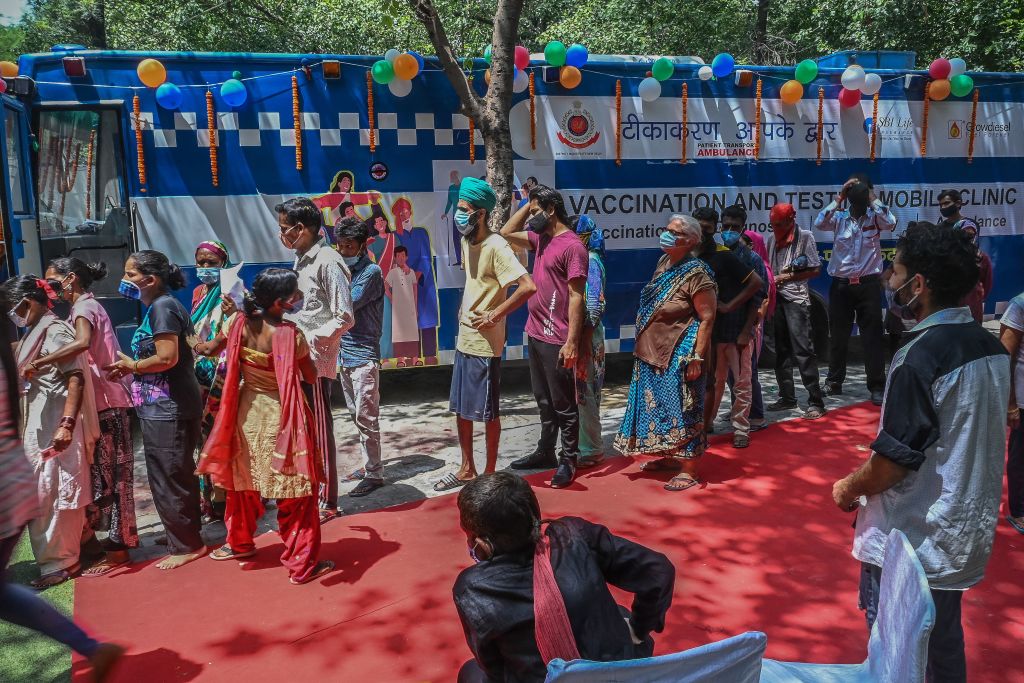- Friday, April 26, 2024

By: Pramod Kumar
THE highly contagious Delta variant, first detected in India, is causing a surge in new Covid-19 cases even in countries with high vaccination rates, and experts warn that immunisation campaigns are in a race against time to contain it.
Globally, the pandemic is still slowing down, with the WHO reporting the lowest number of new cases worldwide since February and decreasing deaths attributed to the coronavirus.
But concerns are growing about the variant, prompting new restrictions in countries that had previously managed to control their epidemics.
“Globally there is currently a lot of concern about the Delta variant — and WHO is concerned about it too,” said WHO chief Tedros Adhanom Ghebreyesus.
“Delta is the most transmissible of the variants identified so far, has been identified in at least 85 countries and is spreading rapidly among unvaccinated populations. As some countries ease public health and social measures, we are starting to see increases in transmission around the world.”
Cases are on the rise in Russia, Australia, Israel and across parts of Africa, in part due to Delta.
In Europe, Delta initially gained a foothold in Britain, where it quickly outpaced the previous variant of concern Alpha, and now comprises 95 per cent of all sequenced cases in England.
Delta is thought to be some 40 to 60 per cent more contagious than Alpha, which itself is more contagious than the strain responsible for the first wave of Covid-19.
In the US last week, 35 per cent of positive tests that were sequenced were identified as the Delta variant, up from about 10 per cent on June 5, numbers similar to what is being observed in Israel.
The European Centre for Disease Control (ECDC) has estimated Delta could account for 70 per cent of new infections in the EU by the beginning of August and 90 per cent by the end of that month.
‘Greatest threat’
Top US infectious disease scientist Anthony Fauci called the variant the “greatest threat” to efforts to control the virus and urged an acceleration in vaccinations, media reports said.
While several studies have shown that vaccines are slightly less effective against Delta, they are still highly effective — but only after the second dose.
Recent data from the British government shows that full immunisation can offer about 96 per cent protection against hospitalisation and 79 per cent protection against symptomatic infection by the Delta variant.
Protection after only one dose, however, is much weaker — 35 per cent.
Delta is so contagious that experts say more than 80 per cent of a population would need to be jabbed in order to contain it — a challenging target even for nations with significant vaccination programmes.
In Africa, the WHO estimates that only one per cent of the population is fully vaccinated — the lowest ratio globally.
The Delta variant has been reported in 14 African countries, accounting for most new cases in the Democratic Republic of Congo and Uganda.
“A further complication is that Delta largely seems to bypass immunity that might be conferred by a previous infection, said Samuel Alizon, a biologist specialised in infectious disease modelling. “We can’t really rely on natural immunity anymore.”
With large numbers of younger people remaining unvaccinated, tough measures may have to be reintroduced to stop the spread, even in nations where large-scale vaccine roll-outs had held out the promise of reopening.
Some countries, such as Israel and Australia, have already announced a return to certain restrictions.
![]()